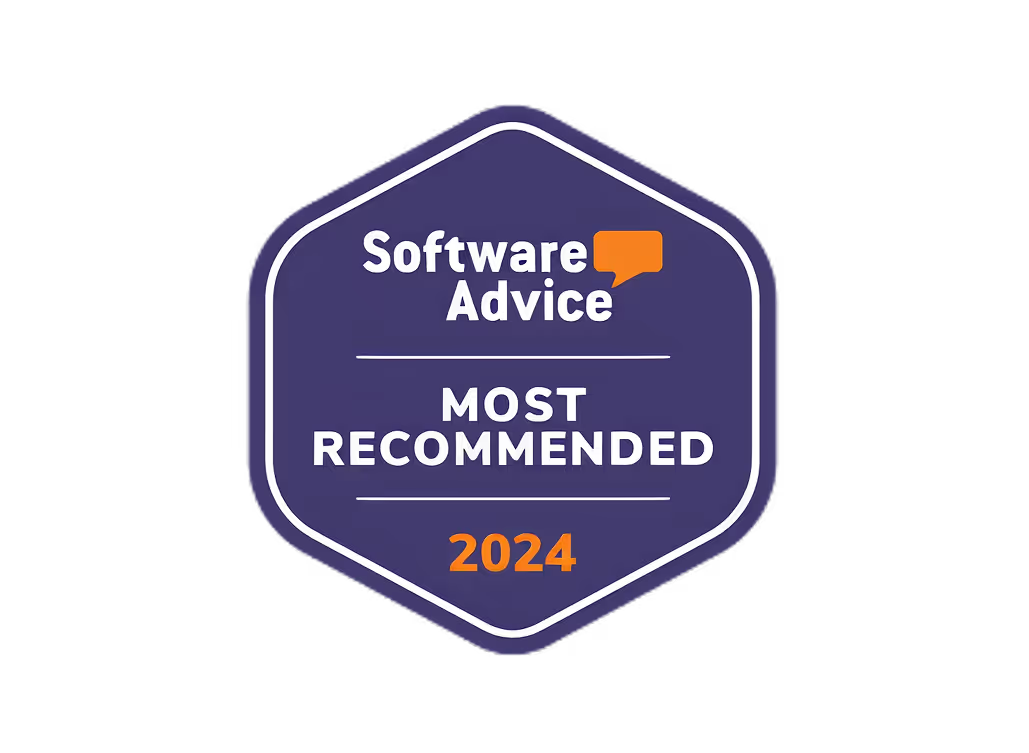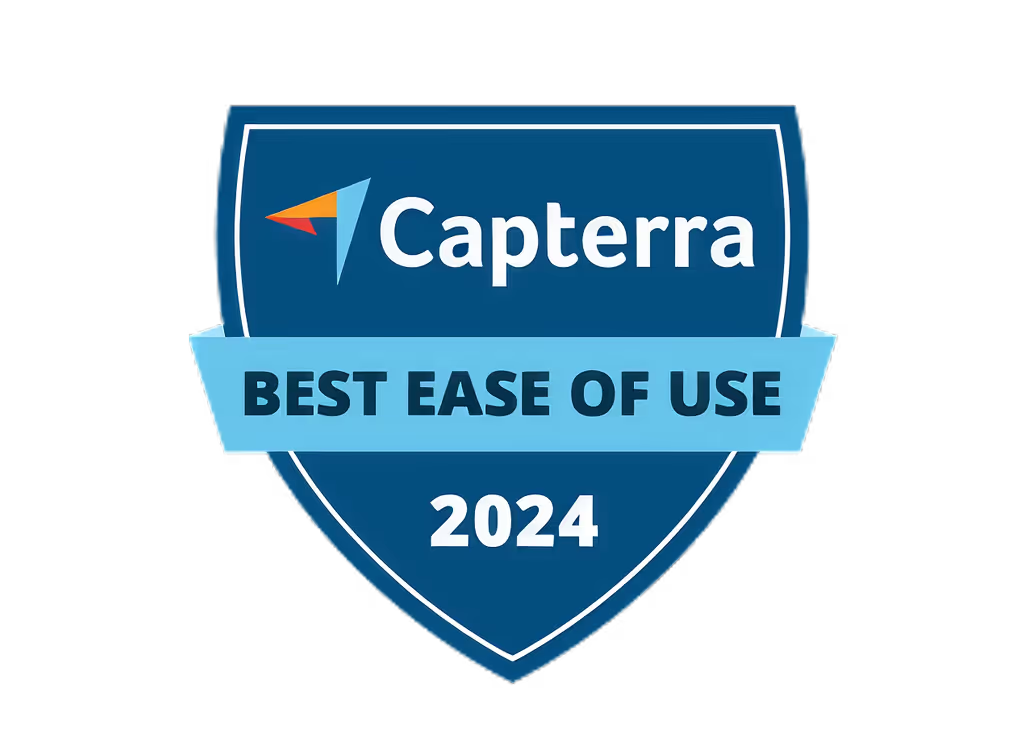Unlocking Ecommerce Growth: Your Guide to Choosing the Right Google Shopping Ads Agency

Trying to get your online store noticed on Google can feel like a lot. You know you need to be there, but figuring out the best way to run ads, especially Google Shopping ads, is tough. That's where a good google shopping ads agency comes in. They know the ins and outs of making those product ads work for you, helping you get more sales without you having to become a Google Ads expert yourself. This guide will help you find the right one.
Key Takeaways
- Google Shopping ads are a big deal for ecommerce, and an agency can help you use them right.
- Always start with what you want to achieve for your business, not just what Google suggests for ads.
- Look for agencies that know ecommerce well and have proof they can get results.
- Good agencies are open about what they're doing and how your ads are performing.
- Smart management means watching your ads, measuring what matters, and making small changes often.
Understanding The Value Of A Google Shopping Ads Agency

Why Google Ads Is Crucial For Ecommerce Growth
In today's online marketplace, getting your products in front of the right shoppers is half the battle. Google Shopping Ads, formerly known as Product Listing Ads, are a direct way to do just that. They show up right when someone is searching for a product you sell, complete with an image, price, and your store name. For ecommerce businesses, this isn't just another ad type; it's often a primary driver of sales. When people are actively looking to buy, these ads capture that intent. Without a solid Google Shopping Ads strategy, you're likely leaving a lot of potential revenue on the table. It's a competitive space, and simply listing products isn't enough to stand out.
The Agency Advantage In Search Engine Marketing
Managing Google Shopping Ads effectively takes time, knowledge, and constant attention. It's not just about uploading a product feed and setting a budget. You need to think about how your products are categorized, how your bids are set, and how you're reacting to market changes. This is where an agency comes in. They bring a level of focus and skill that's hard to replicate in-house, especially if you're juggling many other aspects of your business. They understand the nuances of Google's platform, how to structure campaigns for maximum impact, and how to interpret the data to make smart adjustments.
Agencies can help with:
- Campaign Structure: Organizing your products and campaigns in a way that makes sense for your business goals and allows for efficient management.
- Bidding and Budgeting: Developing smart strategies for how much to bid on different products and managing your overall ad spend to get the best return.
- Performance Monitoring: Constantly watching how your ads are doing and making changes to improve results.
- Product Feed Optimization: Making sure your product information is accurate and appealing to both Google and potential customers.
Trying to manage Google Shopping Ads without a clear plan is like trying to navigate a busy city without a map. You might eventually get somewhere, but it's going to be a lot slower, more frustrating, and you'll probably miss out on some great shortcuts.
Key Takeaways For Partnering With An Agency
When you decide to work with an agency, it's important to know what you're looking for. They should be more than just a service provider; they should be a partner invested in your success. Look for an agency that asks about your business goals first, not just about your ad budget. They should be able to explain their process clearly and show you how they plan to achieve your specific objectives. Transparency in reporting and communication is also key. You want to understand what's happening with your ad spend and see the results in plain language. Ultimately, the right agency will feel like an extension of your own team, working to grow your business through smart advertising.
Defining Success: Aligning Campaigns With Business Goals
When you start running Google Shopping ads, it's easy to get caught up in the default settings and what Google suggests. But here's the thing: Google doesn't know your business like you do. It doesn't know your profit margins, what inventory you need to move quickly, or which products are your real cash cows. That's why you need to start with your own business goals, not Google's default options. Think of your business goal as the main direction for your entire ad strategy.
Start With Your Business Goal, Not Google's Default Settings
Many businesses make the mistake of picking a campaign type first, like Performance Max or Standard Shopping, without thinking about what they actually want to achieve. Google's automated systems are smart, but they can't read your mind or your financial reports. If you don't tell them what matters most, they'll make assumptions. This can lead to campaigns that spend money but don't actually help your bottom line. It's way better to figure out your objectives first, then choose the campaign type that fits.
Common Ecommerce Business Goals To Prioritize
What are you trying to accomplish with your ads? It's not always just about making more sales. Here are some common goals that ecommerce businesses focus on:
- Maximize Revenue from Top Sellers: Push your best-selling products to get the most sales possible.
- Protect Margins on High-Value Items: Make sure you're still making good profit on your more expensive products.
- Clear Out Slow-Moving Stock: Get rid of inventory that isn't selling well, especially seasonal items.
- Drive In-Store Traffic: Encourage people to visit your physical stores using local ads.
- Acquire New Customers: Bring in people who haven't bought from you before.
Each of these goals needs a different approach. For example, clearing stock might mean focusing on how many items you sell, while promoting high-margin products means watching your profit closely.
Your Business Goal Is the North Star
Once you know your main business goal, it becomes your guide for everything else. This goal should dictate your campaign structure, how much you spend, and how you bid. It also means you need to know how you'll measure success. Don't just look at clicks; look at metrics that actually impact your business, like return on ad spend (ROAS) or cost per sale. Setting clear targets before you even launch a campaign helps you avoid making changes based on incomplete data. It keeps you focused on what truly matters for your business growth.
Before you turn on any ads, write down what success looks like. What's a good return on investment for you? How will you track it? And how long will you let the campaign run before deciding if it's working? This pre-planning stops you from tweaking things too much based on early, unreliable data.
Evaluating Potential Google Shopping Ads Agencies
So, you've decided to bring in the pros to handle your Google Shopping ads. That's a smart move. But with so many agencies out there, how do you pick the right one? It's not just about finding someone who knows Google Ads; it's about finding a partner who gets your business and can actually move the needle.
Assess Their Approach To Strategy And Optimization
When you talk to potential agencies, don't just ask them what they do. Ask them how they do it. A good agency won't just set up campaigns and hope for the best. They'll have a clear plan for how they'll figure out what works for your specific products and goals.
- Strategy Development: How do they plan to approach your account? Do they ask about your business goals first, or do they jump straight into campaign settings? Look for an agency that wants to understand your profit margins, your best-selling items, and your overall sales targets.
- Optimization Process: What does their day-to-day optimization look like? Are they just tweaking bids, or are they looking at the bigger picture? This includes things like analyzing search terms to find new opportunities or adding negative keywords to stop wasted spend. They should also be thinking about how to structure your campaigns so that Google's smart bidding can work its magic more effectively.
- Data Analysis: How do they use data? It's not enough to just look at numbers. They need to be able to interpret them and turn them into actionable insights. Ask them what metrics they focus on beyond just clicks and impressions. Things like Return on Ad Spend (ROAS), conversion value, and impression share are way more important for actual business growth.
The best agencies don't just manage ads; they manage your advertising budget with a sharp eye on efficiency. They'll help you understand where your money is going and how it's contributing to your bottom line. This means being smart about bidding, not just letting automation run wild without direction.
Evaluate Industry Experience And Client Portfolio
Has the agency worked with businesses like yours before? It's not always a deal-breaker if they haven't, but it certainly helps. An agency that understands the nuances of your industry – whether you sell handmade jewelry or industrial machinery – will likely hit the ground running faster.
- Case Studies: Ask for examples of their past work, especially with clients in a similar niche or with similar business goals. What kind of results did they achieve? Look for concrete numbers, not just vague promises.
- Client Testimonials/References: Hearing directly from their current or past clients can be incredibly telling. Do clients rave about their communication, their results, or their strategic thinking?
- Industry Specialization: Some agencies focus heavily on e-commerce, while others might be more general. For Google Shopping, an e-commerce focus is usually a big plus because they'll be familiar with product feeds, inventory management, and the specific challenges online retailers face.
Check For Transparency And Communication
This is a big one. You're trusting an agency with your ad spend, so you need to know what's going on. Poor communication can lead to misunderstandings and missed opportunities.
- Reporting: What kind of reports will you get, and how often? Are they easy to understand? Do they clearly show how the campaigns are performing against your goals?
- Communication Channels: How will you communicate? Will you have a dedicated account manager? How quickly do they respond to questions or concerns?
- Pricing Structure: Make sure you understand exactly how they charge. Is it a percentage of ad spend, a flat fee, or something else? Are there any hidden costs? Transparency here builds trust from the start.
Choosing an agency is a bit like hiring a new team member. You want someone skilled, reliable, and who communicates well. Take your time, ask the right questions, and trust your gut.
Key Features Of A Top Google Ads Agency For Ecommerce
When you're looking for an agency to handle your Google Shopping Ads, it's not just about finding someone who knows how to set up a campaign. You need a partner who really gets ecommerce and knows how to make Google Ads work specifically for online stores. Think of it like hiring a chef – you wouldn't hire a baker to cook your steak, right? It’s the same idea here. You need someone with the right skills for the job.
Deep Ecommerce and PPC Expertise
This is probably the most important thing. An agency that specializes in ecommerce knows the ins and outs of selling products online. They understand things like product feeds, which are basically the backbone of Google Shopping Ads. They know how to get your products in front of the right people at the right time. This means they're not just running ads; they're running ads that are built for selling stuff online. They also keep up with all the changes Google makes, because believe me, Google changes things all the time. This way, your campaigns don't get stale and stop working.
Data-Driven Approach and ROI Focus
Anyone can spend money on ads, but a good agency makes sure that money is working hard for you. They look at the numbers constantly. What's working? What's not? They use this information to make smart decisions about where to put your budget. Their main goal is to get you the best return on your investment (ROI). This means they're focused on making you more sales and profit, not just getting clicks. They'll track everything so you know exactly where your money is going and what results you're getting. It’s all about making sure every dollar spent brings in more dollars.
Comprehensive Multi-Channel Integration
Your business doesn't exist in a vacuum, and neither should your advertising. A top agency won't just focus on Google Shopping Ads alone. They'll look at how these ads fit into your overall marketing picture. This could mean connecting your Shopping Ads with your social media ads, your email marketing, or even ads on other platforms like Amazon. They want to create a consistent experience for your customers, no matter where they see your brand. This way, someone who sees your ad on Google might see a follow-up ad on Facebook, reminding them to come back and buy. It’s about building a complete strategy that works together to bring in sales. They understand that reaching customers often takes more than one touchpoint, and they plan accordingly to drive engagement across different platforms.
Mastering Google Shopping Ads Management

Running Google Shopping ads isn't a 'set it and forget it' kind of deal. Things change, right? The market shifts, competitors tweak their prices, and Google's algorithms are always learning. The real trick is keeping an eye on what actually matters and making adjustments as you go. It’s about making sure your campaigns are actually hitting the business goals you set, not just churning out activity.
Monitoring, Measurement, and Iteration
Success in Google Shopping ads comes down to watching the right numbers and tweaking your approach. You need to focus on the metrics that tie directly back to your business objectives. Think about your ad spend, your return on ad spend (ROAS), click-through rates (CTR), how often your ads are showing compared to how often they could be (impression share), the percentage of new customers you're bringing in, and even store visits if that's a goal. These figures tell you if your campaigns are doing what you need them to do.
Use tools like Google Analytics and Google Merchant Center to get a clear picture. Look at the insights from Performance Max campaigns to see which parts are working well – like asset groups or listing groups. Combine this with reports on your product feed's health. This creates a feedback loop: good product data leads to better ad performance, and vice versa. Don't forget to check the actual search terms people are using and add negative keywords to stop wasted spend.
It's a good idea to have a quick check-in, maybe monthly, to make sure your campaigns are still aligned with your business priorities. Small, consistent changes add up over time, keeping your strategy sharp and your money working efficiently.
The biggest mistake many businesses make is starting with Google's default campaign settings instead of their own business goals. Google's automation is smart, but it doesn't know your profit margins or which products are most important to sell right now. If you don't tell it, it will make decisions for you, and they might not be the best ones for your bottom line.
Bidding and Budget Strategy Aligned to Goals
Your bidding strategy needs to match what your business is trying to achieve. Automation is great, but it needs direction. If you don't set clear targets, Google's Smart Bidding might focus on getting cheap clicks rather than profitable sales. While manual bidding gives you control, it's hard to scale. Smart Bidding strategies, like 'Maximize Conversions' or 'Target ROAS', let Google adjust bids in real-time based on what a user is likely to do.
Here's a common way to stage your bidding strategy as your data grows:
- Start with 'Maximize Conversions': This helps Google gather enough data to learn about your customers and their buying habits.
- Transition to 'Target ROAS': Once you have a solid amount of conversion data, switch to this strategy to aim for a specific return on your ad spend.
- Gradually increase ROAS targets: As your campaigns perform well and you gain confidence, slowly raise your ROAS targets to reach your true profitability goals without hurting campaign performance.
Scaling Beyond Google's Ecosystem
Once your Google Shopping ad management is running smoothly and hitting your targets, think about expanding. The same organized data and goal-focused approach that works on Google can be applied to other platforms. Consider replicating your successful campaign structure on Microsoft Ads (formerly Bing Ads). Using unified dashboards to compare performance and profitability across different channels can make scaling more predictable and less chaotic. When every platform operates from the same well-structured data source, growth becomes much easier to manage.
Leveraging Advanced Strategies For Maximum Impact
Okay, so you've got your campaigns set up, and things are moving. But are you really getting the most out of Google Shopping? To truly make your ads work harder, you need to go beyond the basics. This means getting smart about how your product information is presented, who you're showing your ads to, and how you structure everything.
Product Feed Optimization Is Critical
Think of your product feed as the foundation of your entire Google Shopping presence. If it's messy, incomplete, or just plain wrong, your ads won't perform well, no matter how much you spend. An agency will spend time making sure your product titles are clear and include relevant keywords, your descriptions are compelling and highlight unique selling points, and all the attributes (like color, size, material) are accurate and detailed. This isn't just about looking good; it directly impacts how often Google shows your products and to whom.
- Titles: Make them descriptive and keyword-rich. Include brand, product type, and key features.
- Descriptions: Go beyond basic specs. Tell a story, highlight benefits, and use persuasive language.
- Images: Use high-quality, clear images that show the product from multiple angles.
- Attributes: Fill out as many relevant attributes as possible (e.g., gender, age group, material, pattern) to help Google categorize your products accurately.
Targeting The Right Audience Segments
Showing ads to everyone is a waste of money. A good agency knows how to pinpoint the people most likely to buy. This involves looking at more than just basic demographics. They'll dig into:
- Behavioral Data: What have people searched for? What sites have they visited?
- Past Interactions: Have they visited your site before? Did they add items to their cart?
- Interests: What are their general interests that might relate to your products?
- Demographics: Age, gender, location – the basics, but important.
By creating specific audience segments, you can tailor your ad messaging and bids to be more relevant, leading to better conversion rates.
Structuring Campaigns Like A Master Architect
Just dumping all your products into one big campaign is rarely the best approach. Agencies often break down Shopping campaigns into smaller, more manageable pieces. This allows for more control and customization. For example, you might have separate campaigns for:
- Best-selling products: Give these extra attention and budget.
- High-margin products: Focus on profitability.
- New arrivals: Build buzz and awareness.
- Seasonal items: Align with holidays or specific times of year.
- Low-performing products: Try different strategies to boost them.
This detailed structure means you can apply specific bidding strategies, ad copy, and targeting to each group, making your overall advertising effort much more effective. This granular control is key to maximizing your return on ad spend.
Building a well-structured campaign is like building a house. You need a solid foundation, clear divisions between rooms, and specific purposes for each area. Trying to manage everything under one roof without any organization leads to chaos and inefficiency. A strategic agency acts as the architect, designing a campaign structure that supports your business goals and allows for precise management and optimization.
Wrapping It Up
So, picking the right agency for your Google Shopping Ads isn't just about finding someone who knows how to set up a campaign. It's about finding a partner who really gets your business goals. Think about what you want to achieve – more sales, better profit margins, clearing out old stock? Make sure the agency you choose starts there, not just with what Google suggests. Look for folks who can show you proof they've helped businesses like yours, who talk straight about what they're doing, and who make it easy to see how your money is being spent. Getting this right means your ads will work harder for you, bringing in the customers you want and helping your online store grow.
Frequently Asked Questions
Why should I hire a Google Shopping Ads agency?
Think of it like this: managing Google Shopping Ads can be tricky. An agency has experts who know all the tricks to make your ads show up to the right people at the right time. They help you get more sales without wasting money, which is super important for growing your online store.
How do I know if an agency is good for my business?
Look for an agency that has helped other online stores like yours before. Ask them about their past successes and how they plan to help you. They should be good at explaining what they're doing and showing you how your ads are doing.
What's more important: my business goals or Google's settings?
Your business goals are way more important! Google's settings are helpful, but they don't know your specific products or how much profit you make. You need to tell the agency what you want to achieve, like selling more of a certain item or getting rid of old stock, and they'll build ads to match that.
What makes an agency stand out for online stores?
A great agency really understands online selling and how Google Ads work. They use data to make smart choices, focus on making you money (not just getting clicks), and can connect your Google Ads with other advertising you might be doing.
How do agencies make my product ads better?
They make sure your product information is perfect, like clear titles and good descriptions. They also figure out the best ways to bid on ads and show them to people who are most likely to buy, making sure your ads get seen by the right shoppers.
What if I want to sell more in my physical store too?
Some agencies can help with that! They can use Google Ads to show your products to people nearby, encouraging them to visit your store. This helps bring more local shoppers to you and can boost sales both online and in person.

















